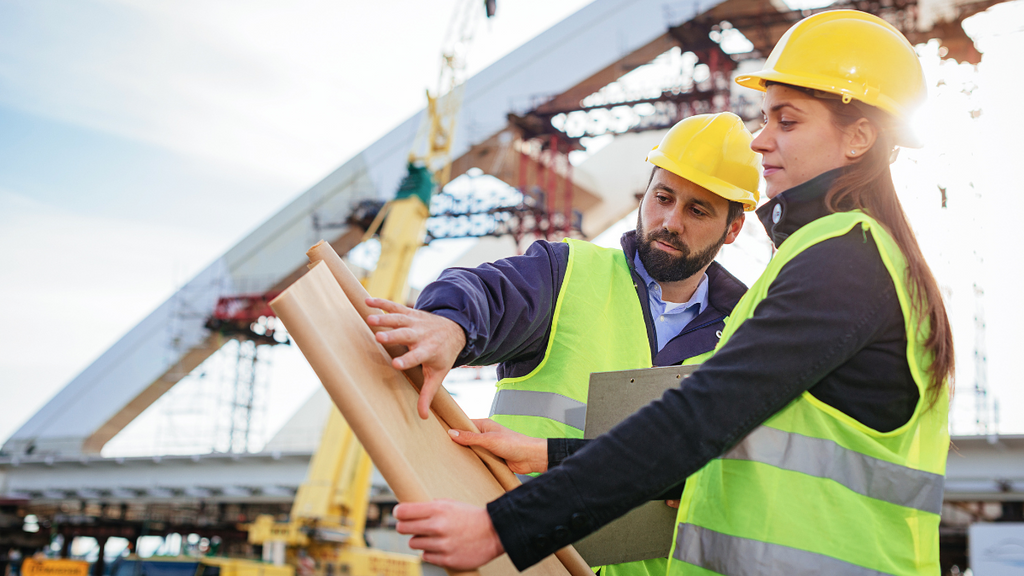Geotheta Can Be Fun For Anyone
Geotheta Can Be Fun For Anyone
Blog Article
How Geotheta can Save You Time, Stress, and Money.
Table of ContentsGeotheta - TruthsGetting My Geotheta To WorkThe Ultimate Guide To GeothetaThe smart Trick of Geotheta That Nobody is DiscussingThe Ultimate Guide To Geotheta

They perform site investigations, accumulate samples, do lab tests, and assess information to examine the viability of the ground for building jobs - Consulting Engineers. Based upon their findings, geotechnical engineers offer recommendations for foundation layout, slope stability, keeping structures, and mitigation of geotechnical risks. They work together with various other professionals, such as engineers, structural engineers, and building groups, to make certain that geotechnical factors to consider are integrated into the total task design and execution
By examining the actions and properties of soil and rock, they can recognize potential geotechnical hazards such as landslides, soil negotiation, or slope instability. Their proficiency aids protect against failings or crashes that can jeopardize lives and home. Here are some thorough duties and obligations of a geotechnical designer: Website Investigation: Geotechnical designers conduct website investigations to collect information on subsurface conditions.
They interpret the information to understand the homes and actions of the soil and rock, including their stamina, permeability, compaction attributes, and groundwater problems. Geotechnical Analysis and Layout: Geotechnical engineers examine the data gathered throughout site investigations to assess the stability and suitability of the website for building jobs. They perform geotechnical computations and modeling to review variables such as bearing ability, negotiation, slope stability, lateral planet pressures, and groundwater circulation.
Fascination About Geotheta
Foundation Design: Geotechnical engineers play a critical function in developing foundations that can securely sustain the designated structure. They examine the soil conditions and tons needs to determine the appropriate foundation kind, such as superficial foundations (e.g., footings), deep foundations (e.g (https://geotheta.carrd.co/)., stacks), or specialized techniques like dirt enhancement. They consider aspects such as settlement limits, birthing ability, and soil-structure communication to establish optimum structure designs
They examine building strategies, display website activities, and carry out area examinations to verify that the design recommendations are complied with. If unpredicted geotechnical issues emerge, they analyze the circumstance and give recommendations for remediation or adjustments to the style. Risk Analysis and Mitigation: Geotechnical engineers assess geotechnical dangers and threats related to the job website, such as landslides, liquefaction, or dirt disintegration.

Cooperation and Interaction: Geotechnical designers work carefully with various other specialists associated with a task, such as architects, structural engineers, and construction groups. Efficient communication and cooperation are necessary to incorporate geotechnical considerations right into the total task layout and building process. Geotechnical engineers supply technical know-how, answer inquiries, and guarantee that geotechnical needs are satisfied.
Geotheta Can Be Fun For Everyone
Right here are some sorts of geotechnical engineers: Structure Engineer: Structure designers specialize in developing and evaluating structures for frameworks. They assess the soil problems, load requirements, and website features to figure out one of the most ideal foundation kind and layout, such as superficial structures, deep structures, or specialized methods like heap foundations.
They evaluate the factors affecting slope security, such as dirt residential properties, groundwater problems, and incline geometry, and develop techniques to stop incline failures and minimize risks. Earthquake Designer: Quake designers concentrate on analyzing and designing structures to stand up to seismic pressures. They examine the seismic danger of a website, examine dirt liquefaction capacity, and establish seismic style criteria Read Full Article to make sure the security and strength of frameworks during quakes.
They perform area testing, collect examples, and examine the collected information to characterize the dirt buildings, geologic formations, and groundwater problems at a website. Geotechnical Instrumentation Engineer: Geotechnical instrumentation designers concentrate on monitoring and determining the behavior of dirt, rock, and frameworks. They set up and preserve instrumentation systems that keep track of aspects such as dirt settlement, groundwater levels, slope movements, and architectural displacements to analyze performance and provide early cautions of prospective issues.
Geotheta for Beginners
They carry out tests such as triaxial examinations, consolidation tests, straight shear tests, and leaks in the structure examinations to collect data for geotechnical evaluation and style. Geosynthetics Engineer: Geosynthetics designers specialize in the style and application of geosynthetic products, such as geotextiles, geogrids, and geomembranes. They use these products to improve soil security, enhance slopes, offer drainage services, and control disintegration.
They often tend to be investigative people, which implies they're intellectual, introspective, and curious. They are interested, methodical, reasonable, analytical, and rational. Several of them are likewise social, suggesting they're kind, generous, cooperative, individual, caring, valuable, empathetic, sensible, and pleasant. Does this seem like you? Take our cost-free profession examination to figure out if geotechnical designer is one of your top job suits.
In the office environment, geotechnical engineers utilize specialized software program tools to perform computations, create designs, and assess data. They prepare reports, evaluation job specs, interact with clients and employee, and coordinate task activities. The office setup gives a favorable environment for research study, analysis, and cooperation with other professionals associated with the project.
Some Known Incorrect Statements About Geotheta
They regularly see project sites to conduct website examinations, examine geotechnical conditions, and collect information for analysis. These gos to involve traveling to various locations, in some cases in remote or tough surfaces. Geotechnical designers may do soil sampling, conduct examinations, and monitor building and construction activities to ensure that the geotechnical aspects of the job are being executed properly.
Geotechnical designers additionally function in specialized geotechnical labs. Geotechnical lab engineers work extensively in these environments, managing screening equipment, operating tools, and recording data.
Report this page